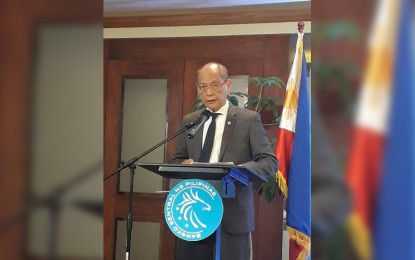
BSP Governor Benjamin Diokno
MANILA – Borrowers need not worry about additional interest for payments due within the enhanced community quarantine (ECQ) period that were not paid, Bangko Sentral ng Pilipinas (BSP) Governor Benjamin Diokno said.
In a virtual Palace briefing Monday, Diokno said the Bayanihan to Heal as One Act specified that deadlines for payments of loans for car, mortgage, and credit cards, among others, were suspended when parts of the country were placed under ECQ.
He said the deadlines should have been extended to either June or July.
“There should be no interest on interest or penalties,” he said, clarifying that the interest that should be slapped on the customers are only those imposed before the ECQ.
Diokno said the central bank has extended relief measures to the banks to help the sector so bank clients, either individuals or firms, need to only discuss with the officers of their banks on what to do with their loans.
He also asked the public to report to the BSP any complaints they have regarding banks.
Meanwhile, Diokno said they have not received any report of rural bank closures caused by the pandemic.
In his presentation, Diokno said some rural banks closed shop in the past because of competition, as more major banks opened additional branches.
The crisis caused by the coronavirus disease 2019 (Covid-19), he added, “is unlike any we have encountered before given the source, the immediate and far-reaching consequences on the global economy, and the corresponding responses of governments.”
In the case of the Philippines, he said the government entered the pandemic at a strong position because of sustained domestic expansion and low inflation, among others.
“Unlike other countries, we are in a strong position to face this crisis as we also have greater monetary and fiscal space,” Diokno said.
He said domestic growth, as measured by gross domestic product (GDP), has been growing by at least 6 percent since 2012, with this year’s growth target earlier set between a range of 6.5 percent to 7.5 percent.
The growth target has been changed by the inter-agency Development Budget Coordination Committee (DBCC) to a contraction of between 2 percent to 3.4 percent as a result of the pandemic.
This, after GDP contracted by 0.2 percent in the first three months of the year, the first negative growth after the last quarter of 1998, ending the expansion in the last 84 quarters.
Diokno said second-quarter growth will be a deeper contraction but said that macroeconomic fundamentals remain strong and economic policies to address the impact of the pandemic are targeted.
“Going forward, the BSP will remain data-driven in crafting monetary policy as it considers the range of tools and policy measures available that may be required to combat the crisis. The BSP is prepared to use the full range of its monetary instruments and to deploy monetary policy and regulatory relief measures as needed to save lives, jobs and livelihoods consistent with its price and financial stability goals,’ he added. (PNA)
